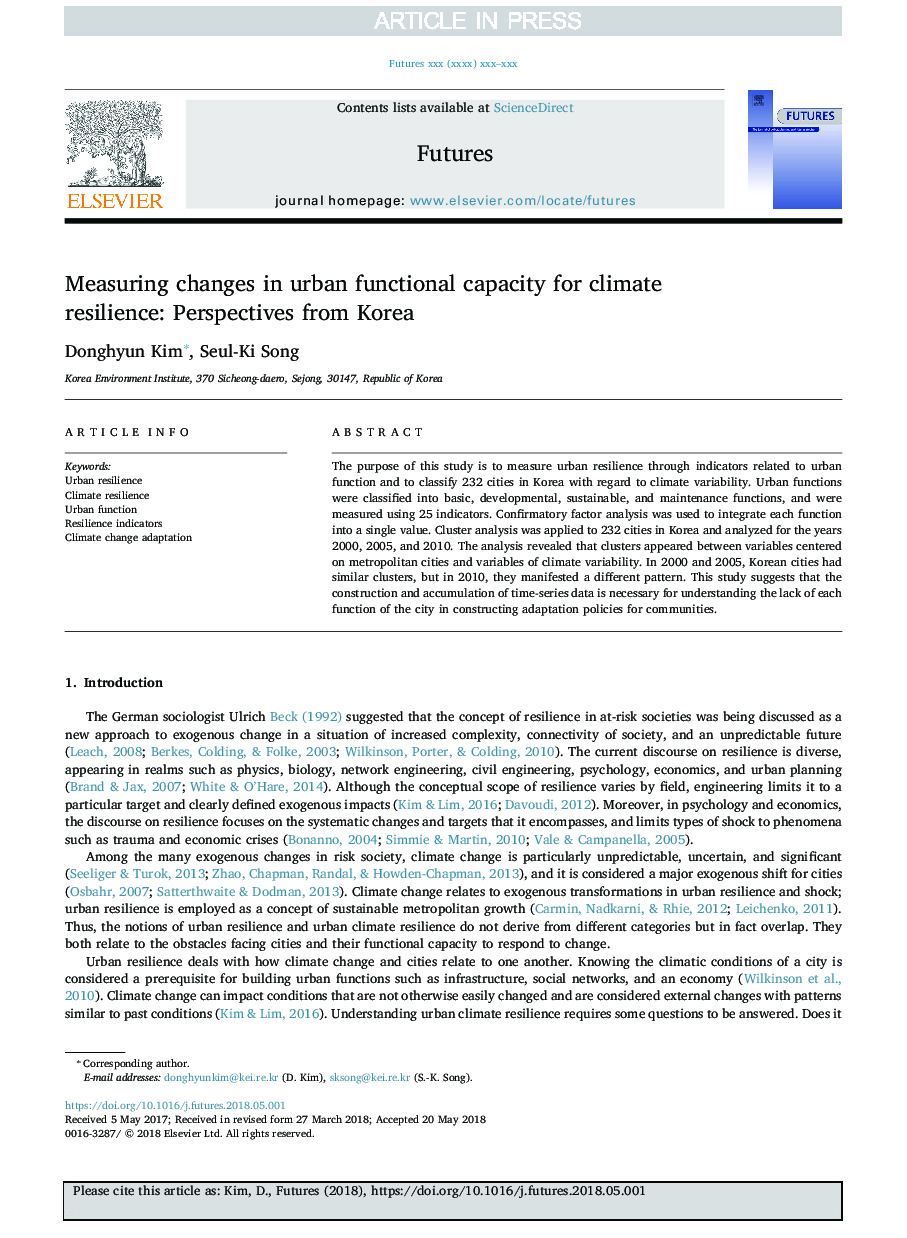| Article ID | Journal | Published Year | Pages | File Type |
|---|---|---|---|---|
| 8942428 | Futures | 2018 | 15 Pages |
Abstract
The purpose of this study is to measure urban resilience through indicators related to urban function and to classify 232 cities in Korea with regard to climate variability. Urban functions were classified into basic, developmental, sustainable, and maintenance functions, and were measured using 25 indicators. Confirmatory factor analysis was used to integrate each function into a single value. Cluster analysis was applied to 232 cities in Korea and analyzed for the years 2000, 2005, and 2010. The analysis revealed that clusters appeared between variables centered on metropolitan cities and variables of climate variability. In 2000 and 2005, Korean cities had similar clusters, but in 2010, they manifested a different pattern. This study suggests that the construction and accumulation of time-series data is necessary for understanding the lack of each function of the city in constructing adaptation policies for communities.
Keywords
Related Topics
Social Sciences and Humanities
Business, Management and Accounting
Business and International Management
Authors
Donghyun Kim, Seul-Ki Song,
